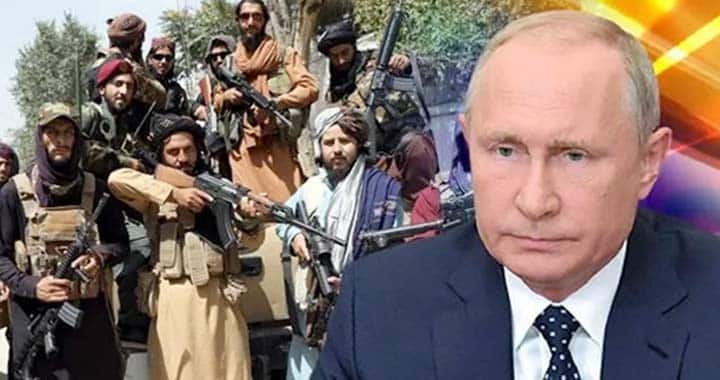Russian President Vladimir Putin has said that while the Taliban is making efforts to stabilize Afghanistan, serious security challenges persist. His comments came during a press conference in Dushanbe, Tajikistan, following a bilateral meeting with Tajik President Emomali Rahmon and the Russia–Central Asia summit focused on regional security.
“The security of the border between Tajikistan and Afghanistan must be ensured,” Putin stated, stressing that even Taliban officials acknowledge the severity of ongoing issues. He expressed concern about extremist groups still operating from Afghan soil, warning that these elements continue to promote radical ideologies and engage in cross-border criminal activities.
Putin’s remarks reflect Russia’s growing unease over the potential for instability in Afghanistan to spill into Central Asia, a region where Moscow maintains strong military partnerships and has long considered a strategic buffer zone.
In a related proposal, Uzbek President Shavkat Mirziyoyev called for a high-level consultative mechanism involving Russia and Central Asian states to coordinate their policies on Afghanistan and bolster regional security.
Despite maintaining limited engagement with the Taliban, Moscow has so far refrained from granting formal recognition, walking a tightrope between pragmatic dialogue and terrorism concerns.
On the other hand, Pakistan once again pressed the Afghan interim government to take decisive action against Tehreek-e-Taliban Pakistan (TTP) and other banned terrorist outfits operating from Afghan territory.
Speaking at the weekly media briefing, Foreign Office Spokesperson said cross-border terrorism remains a grave security concern and is consistently raised with Kabul at bilateral and multilateral levels.
“Pakistan respects Afghanistan’s sovereignty,” he said, “but Afghan soil must not be used for attacks against Pakistan.”
Islamabad has reiterated its three-point demand to the Taliban: neutralise the TTP, hand over its members, or at the very least, relocate them away from the border. But recent intelligence and operations have led to mounting frustration, as evidence grows that the Taliban are not only unwilling to act but are actively providing cover and facilitation to the TTP.
The overlapping concerns voiced by Moscow and Islamabad underscore the broader regional anxiety about the Taliban’s failure to prevent Afghan territory from becoming a safe haven for extremist groups, and the potential consequences for neighboring states.





